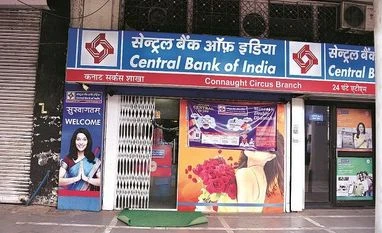The Union government will infuse Rs 70,000 crore into public sector banks (PSBs) in 2019-20 to strengthen and enhance their lending capacity.
While presenting her maiden Budget, Union Finance Minister Nirmala Sitharaman said the government had decided to infuse more capital into PSBs so that credit growth could be improved.
Recapitalisation will involve two legs — first, banks will subscribe to bonds floated by the government.
In the second leg the government will infuse that money into public sector banks, bankers said. The same method was adopted last year for giving capital to banks.
Over the last five financial years (FY15 to FY19), PSBs have been recapitalised to the extent of Rs 3.19 trillion, with an infusion of Rs 2.5 trillion by the government and the mobilisation of over Rs 66,000 crore by PSBs themselves, according to the data presented in the Lok Sabha.
Sitharaman said in Parliament last month the government had taken steps like recapitalising banks, resolving and recovering value from stressed accounts through clean and effective laws and processes.
Anil Gupta, head of financial sector ratings at ICRA, said the recapitalisation amount for PSBs announced in the Budget was more than expected.
For FY20, capital expectations for PSBs were Rs 65,000 crore to 75,000 crore, of which ICRA had assessed that the government would need to put in Rs 35,000-45,000 crore and the banks could raise the balance from the markets.
The recap amount would take care of expected credit growth of 15 per cent, apart from the regulatory requirement even if nothing is raised from the market. Capital infusion by the government will help to free all the remaining banks from the RBI's prompt corrective action (PCA) framework.
Global rating agency Moody’s said the recapitalisation of PSBs in FY20 would support growth by encouraging the flow of credit to the economy, although simultaneously adding to the government’s debt.
The finance minister said non-performing assets (NPAs) of PSBs had come down by Rs 1 trillion. Banks have recovered Rs 4 trillion through the Insolvency and Bankruptcy Code (IBC) and other means effected in the past four years.
Stress recognition has been largely completed. There has been also significant headway in recovery and resolution under the IBC. Slippages have reduced due to improved underwriting and monitoring.
Gross NPAs of PSBs have started declining, after peaking in March 2018, registering a decline of Rs 89,189 crore — from Rs 8.96 trillion in March 2018 to about Rs 8.06 trillion in March 2019.
With substantial cleaning up, accompanied by the capitalisation of banks, the overall credit growth of PSBs has picked up substantially, from 0.78 per cent in FY17 to 7.51 per cent in FY19. Domestic credit has increased by 13 per cent.
She said the government had carried out consolidation in the PSBs, smoothly reducing their number by eight. To date SBI has merged five of its regional affiliates and the Bharatiya Mahila Bank. At the start of the current financial year, Vijaya Bank and Dena Bank were merged with Bank of Baroda.
The government has initiated reforms to tone up the working of PSBs. Board-approved loan policies of PSBs now mandate tying up necessary clearances/approvals and linkages before disbursement, scrutiny of group balance sheet and ring-fencing of cash flows.
They will use third-party data sources for comprehensive due diligence. This is being done to mitigate risk on account of misrepresentation and fraud.
Monitoring has been strictly segregated from sanctioning roles in high-value loans. Also specialised monitoring agencies, combining financial and domain knowledge, have been deployed for effective monitoring of loans above Rs 250 crore.
Unlock 30+ premium stories daily hand-picked by our editors, across devices on browser and app.
Pick your 5 favourite companies, get a daily email with all news updates on them.
Full access to our intuitive epaper - clip, save, share articles from any device; newspaper archives from 2006.
Preferential invites to Business Standard events.
Curated newsletters on markets, personal finance, policy & politics, start-ups, technology, and more.
)